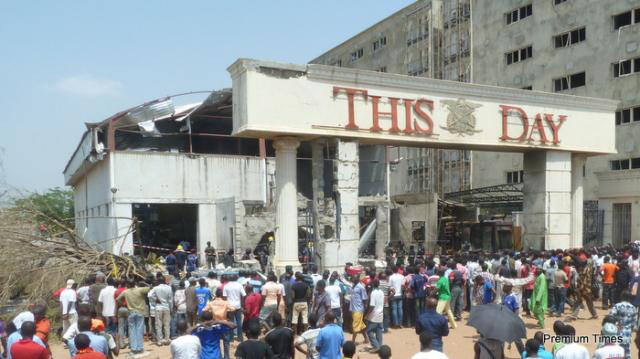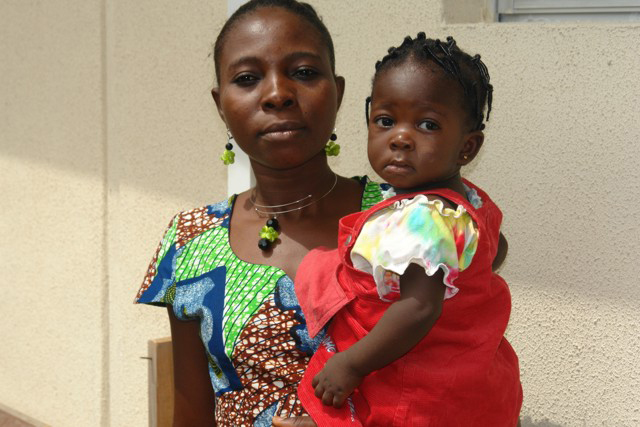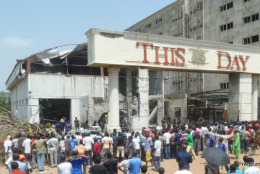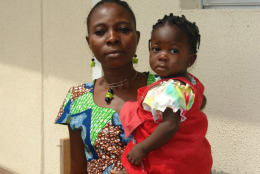



J.J. Green, wtop.com
WASHINGTON – Terrified by roving bands of killers, a farmer in northern Nigeria told her customers last week that she would not be able to make her deliveries.
The farmer, Norma, emailed her patrons, capturing the scope of the widespread and growing violence plaguing Africa’s richest and most progressive country.
“I am sure that most of you are aware of the events of the past few days in the Jos area,” she writes. “Several villages were attacked near Barkin Ladi and many people were killed. Fifty bodies were also discovered having been burnt in a church where people went to seek refuge from the attacks.
“During the burial of the victims, there was another attack during which a Federal Senator representing Plateau State, the House of Assembly Leader, and others died. When news of this got out, youth in many villages blocked roads and killed many travelers passing through the area. Roads into the state were closed.”
Stymied by her concerns and a 6 p.m.-to-noon government curfew, Norma suspended her deliveries, citing too little time to pick fruits and vegetables and pack and deliver them.
Businesses all over the region have shuttered their doors rather than risk the wrath of vigilantes, who began launching attacks in early January. Over several days, 180 people were killed in what appeared to be random violence. The attacks have continued and are now fueled by reprisals.
“There is a serious problem with violence in the north and the Gulf of Benin and associated areas,” says Bruce Wharton, deputy assistant secretary in the U.S. Department of State Bureau of Africa Affairs.
Wharton says the attacks have been indiscriminate.
“Attacks on churches, on mosques, on police stations, on banks. Places where people go to gather,” he says.
The Department of State issued a warning for U.S. citizens to avoid all but essential travel because of the risk of kidnappings, robberies and other armed attacks in northern portions of the country.
From June 29 through July 1, all U.S. government personnel in Abuja were restricted from going to places of worship and commercial establishments adjacent to any place of worship. In addition, all U.S. government personnel were required to return to their residences by midnight.
Authorities now know the attacks are not random. And Wharton says they know who is behind them.
“Ultimately, we believe that a loosely affiliated group that’s collectively known as Boko Haram is responsible for most of those attacks.”
Boko Haram is believed to be split into two camps, says Wharton.
“One is a fairly large group that primarily seeks to embarrass the government of Nigeria,” Wharton says. “Their fundamental concerns are that they believe, with some reason, that the government of Nigeria has ignored the north.”
But a smaller faction of the organization, which Wharton says is “significantly more dangerous” because of connections to al-Qaida in the Islamic Maghreb (AQIM), seeks something else.
“They have openly stated that they seek the overthrow of the government of Nigeria and they have threatened western targets,” Wharton says. “We view them as a more serious threat, a more violent threat and the one that most concerns us.”
Daniel Benjamin, ambassador-at-large and coordinator for counterterrorism at the State Department, delivered a grim assessment of the situation to Congress in April, saying Nigeria is just one of several African countries facing a crescendo of violence.
“In Nigeria, long-standing grievances in the north led to the re-emergence of Boko Haram. And in Somalia, al-Shabaab, while weakened, continues to frustrate efforts to establish a legitimate government and to threaten countries in East Africa,” Benjamin said.
He told the House Foreign Affairs Committee that existing instability is feeding into the growth of new pockets of violence.
“Across the continent, the porous borders and limited resources to control them provide the opportunity for terrorist groups to expand their communication and training and to export their terrorist tactics, further increasing regional instability,” he said.
A case in point is Nigeria’s western neighbor.
“Mali fell off the wagon a couple of months ago, and we’re very concerned about the future of Mali,” says Wharton.
A democracy for 20 years, Mali’s government was toppled in March by disgruntled soldiers.
While the stories of violence and unpredictability seem pervasive, Wharton is hopeful.
“I disagree with the premise that Nigeria is in danger of coming apart,” he says. “I think the forces that hold it together are stronger than that.”
He points to elections a year ago, which he calls “the best they’ve ever had,” as a good sign.
More recently, Nigerian President Goodluck Jonathan has overhauled his national security team, and U.S. officials are helping Nigeria’s law enforcement community set fusion centers to facilitate information sharing.
Efforts to help people resist the appeal of terrorism also are under way. The goal, according to Wharton, is to improve economic and social conditions that might lead disenfranchised Nigerians to side with terrorists.
“In reviewing the various terrorist threats across the east and west of Africa, the challenge can appear daunting,” Benjamin told Congress. “But the reality is much more hopeful.”
He said vast expanses of desert, porous borders and under-resourced governments create an environment conducive to terrorist groups.
“But the lack of resonance of the al-Qaida ideology within most communities, and the commitment of the regional governments to join forces to counter the terrorist threat, have helped to contain it and, if continued, will ultimately lead to its marginalization,” Benjamin said.
Follow J.J. Green and WTOP on Twitter.
(Copyright 2012 by WTOP. All Rights Reserved.)







